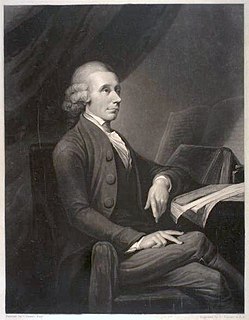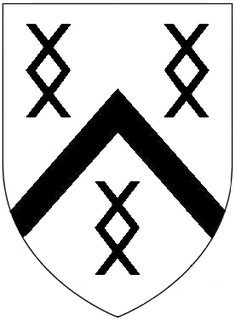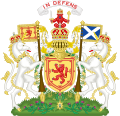Related Research Articles

Richard Neile was an English churchman, bishop successively of six English dioceses, more than any other man, including the Archdiocese of York from 1631 until his death. He was involved in the last burning at the stake for heresy in England, that of the Arian Edward Wightman in 1612.
David Hume or Home of Godscroft (1558–1629) was a Scottish historian and political theorist, poet and controversialist, a major intellectual figure in Jacobean Scotland. It has been said that "Hume marks the culmination of the Scottish humanist tradition."

The Theological Repository was a periodical founded and edited from 1769 to 1771 by the eighteenth-century British polymath Joseph Priestley. Although ostensibly committed to the open and rational inquiry of theological questions, the journal became a mouthpiece for Dissenting, particularly Unitarian and Arian, doctrines.
The Lady Margaret Professorship of Divinity is a senior professorship in Christ Church of the University of Oxford. The professorship was founded from the benefaction of Lady Margaret Beaufort (1443–1509), mother of Henry VII. Its holders were all priests until 2015, when Carol Harrison, a lay theologian, was appointed to the chair.
The post of Lord President of Munster was the most important office in the English government of the Irish province of Munster from its introduction in the Elizabethan era for a century, to 1672, a period including the Desmond Rebellions in Munster, the Nine Years' War, and the Irish Rebellion of 1641. The Lord President was subject to the chief governor, but had full authority within the province, extending to civil, criminal and church legal matters, the imposition of martial law, official appointments, and command of military forces. Some appointments to military governor of Munster were not accompanied by the status of President. The width of his powers led to frequent clashes with the longer established courts, and in 1622 he was warned sharply not to "intermeddle" with cases which were properly the business of those courts. He was assisted by a Council whose members included the Chief Justice of Munster, another justice and the Attorney General for the Province. By 1620 his council was permanently based in Limerick.
Annals of Philosophy; or, Magazine of Chemistry, Mineralology, Mechanics, Natural History, Agriculture and the Arts was a learned journal founded in 1813 by the Scottish chemist Thomas Thomson. It shortly became a leader in its field of commercial scientific periodicals. Contributors included John George Children, Edward Daniel Clarke, Philip Crampton, Alexander Crichton, James Cumming, John Herapath, William George Horner, Thomas Dick Lauder, John Miers, Matthew Paul Moyle, Robert Porrett, James Thomson, and Charles Wheatstone.
John Orum was an English churchman and academic. He was vice-chancellor of Oxford University, and Archdeacon of Barnstaple from 1400 to 1429.

Thomas Milles (1671–1740) was the Church of Ireland bishop of Waterford and Lismore.
George Smeeton was an English printer and compiler of biographical collections.

The 1696 Jacobite assassination plot was an unsuccessful attempt led by George Barclay to ambush and kill William III and II of England, Scotland and Ireland in early 1696.
Richard Preston (1768–1850) was an English legal author and politician.
Murray's Family Library was a series of non-fiction works published from 1829 to 1834, by John Murray, in 51 volumes. The series editor was John Gibson Lockhart, who also wrote the first book, a biography of Napoleon. The books were priced at five shillings; Murray's approach, which did not involve part-publication, is considered a fundamentally more conservative business model, and intention, than used by the contemporary library of the Society for the Diffusion of Useful Knowledge.
John Sturgion was an English General Baptist preacher and pamphleteer.

William Jenkins Rees was a Welsh cleric and antiquary.
Samuel Norton (1548–1621) was an English country gentleman and alchemist.
Joseph Morgan was a British historical compiler.
Arthur Saul was an English Puritan cleric and academic, a Marian exile and canon of Gloucester Cathedral.
Crow Street Theatre was a theatre in Dublin, Ireland, originally opened in 1758 by the actor Spranger Barry. From 1788 until 1818 it was a patent theatre.
References
- ↑ Lee, Sidney, ed. (1891). . Dictionary of National Biography . Vol. 28. London: Smith, Elder & Co.
- ↑ Lee, Sidney, ed. (1896). . Dictionary of National Biography . Vol. 46. London: Smith, Elder & Co.
- ↑ Bruce R. Galloway & Brian P. Levack, The Jacobean Union: Six Tracts of 1604 (Edinburgh: SHS, 1985), pp. liv-lxi, 75-141
